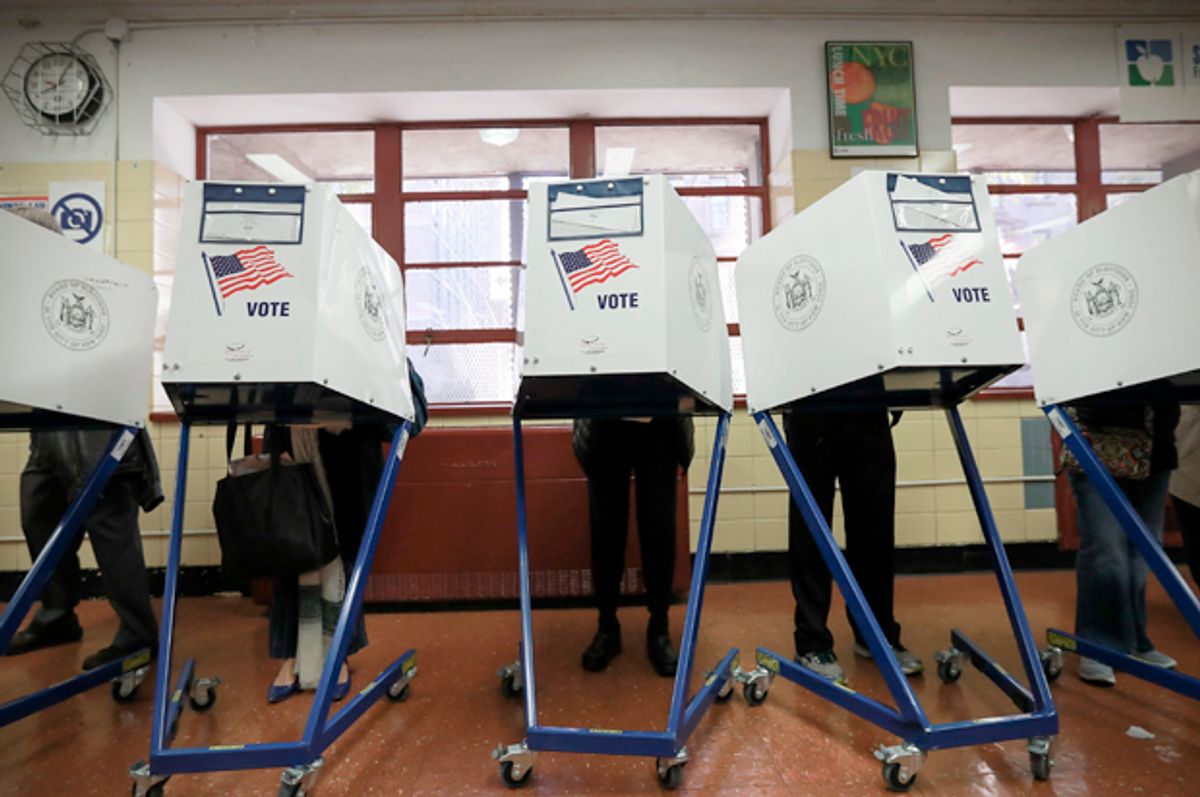If Democrats are going to make inroads in winning elections, all they really need is turnout.
The good news is that 51 percent of registered voters say they would vote for or lean toward the Democratic candidate in their congressional district if the election were held today, according to a Washington Post-ABC News poll. Only 40 percent said they would vote for a Republican in their congressional district as well.
The last time that Democrats had such an advantage over Republicans was in 2006, when they wound up sweeping both the Senate and House of Representatives. At the same time, the Post-ABC poll does contain some bad news for Democrats: Sixty-three percent of Democratic-leaning and Republican-leaning voters say that they are certain to vote in 2018. Even worse, when the only people polled were those who voted in the 2014 midterm elections, the Democrats' 11-point advantage shrinks to a 2-point advantage.
The turnout conundrum could have major implications for the Virginia governor election being held on Tuesday.
"Pollsters who are calling people based off lists of registered voters and mostly relying on their past turnout history (instead of calling random numbers and asking if a person is registered to vote and whether they are going to vote) have tended to get a tighter range of results in Virginia," wrote Harry Enten on FiveThirtyEight. "These polls mostly show a single-digit Northam advantage."
Enten isn't the only pundit who believes the 2017 Virginia gubernatorial race will be close.
"People sometimes think of Virginia as a blue state or a Democratic-leaning state, and it's true that it's gone from a state that routinely voted Republican on the federal level to one that's a little more Democratic than the rest of the nation, but not overwhelmingly so," Kyle Kondik, the director of communications at the University of Virginia Center for Politics, told Salon last month. "And the off-year electorate is smaller than the presidential electorate, which is true of any state, but it's also an older and less diverse electorate, which demographically tends to be more Republican. So I think this is going to be a relatively close race."



Shares